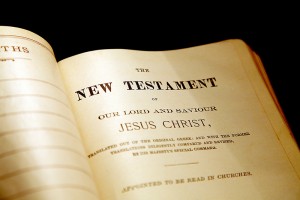The Jewish Leaders Had Forsaken the Higher Torah
Yeshua blasted the religious leaders of his day not only for not following Torah, but also for omitting the weightier matters of Torah, which are mercy, justice and faith.
Woe unto you, scribes and Pharisees, hypocrites! for ye pay tithe of mint and anise and cumin, and have omitted the weightier matters of the law, judgment, mercy, and faith: these ought ye to have done, and not to leave the other undone. Ye blind guides, which strain at a gnat, and swallow a camel. (Matt 23:23)
The Pharisees had a letter-of-the-law righteousness. But Yeshua said that the righteousness of his disciples had to exceed that of the religious Jews of that day (Matt 5:20). Yeshua wasn’t talking about the fine points of a letter-of-the-law Torah-obedience here, for it is doubtful that anyone could have surpassed the punctilious Pharisees in that arena. He must have therefore been talking about something else—something higher and beyond the mere keeping the letter of the law along with all their added legal traditions.
At the same time, sadly, the Jews had inadvertently nullified some of the Torah through their religious traditions (Mark 7:13). The Torah should be viewed as more than just a set of dos and don’ts; we should see it as pointing the way to our Father’s heart. His heart is the higher Torah. To get to YHVH’s heart we must lay aside any religious traditions that nullify the Torah-Word of YHVH, and then follow the Torah at its purest and highest level. But merely following the letter of the Torah legalistically is not sufficient. There is something beyond that.
The Letter Kills, But the Spirit Makes Alive
The letter of the law kills, but the Spirit of the law brings life. The letter by itself brings bondage and legalism. It can even become burdensome and grievous.
Who also hath made us able ministers of the new testament; not of the letter, but of the spirit: for the letter killeth, but the spirit giveth life. (2 Cor 3:6)
For this is the love of Elohim, that we keep his commandments: and his commandments are not grievous/heavy or burdensome. (1 John 5:3)
Love, Not Law-Keeping, Is What Attracts
Yeshua told his disciples that men would know they were his not because they kept the Torah scrupulously to the letter, but because they walked in love for one another.
By this shall all men know that ye are my disciples, if ye have love one to another. (John 13:35)
Paul also taught that love was the greater thing in 1 Corinthians 13. Love is above all knowledge (including Torah), and all prophecy (inspired teaching of Torah).
The Higher Torah Is About Relationship
The higher Torah is this: Continue reading








